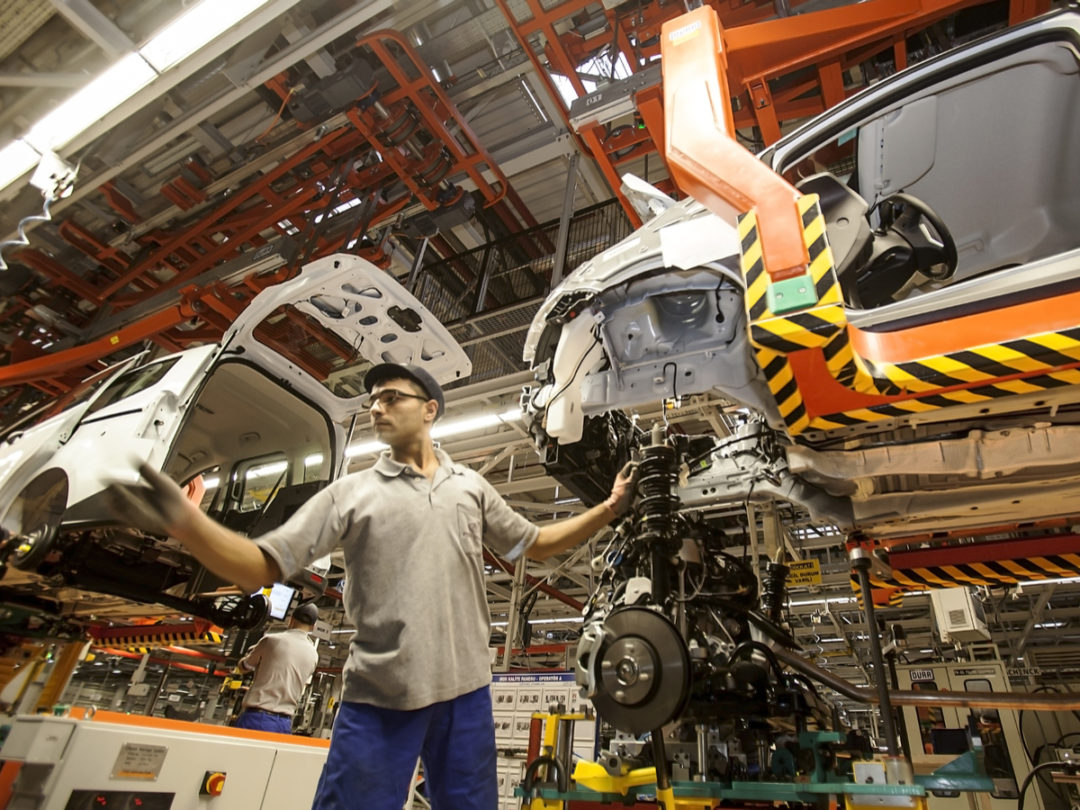
Visit Our Sponsors |
|
|
|
|
|
|
|
|
|
|
|
|
|
|
|
|
|
|
|
|
|
|
|
|
|
|
|
|
|
|
|
|
|
|
|
|
|
|
|
|
|
|
|
|
|
|
|
|
|
|
|
|
|
|
|
|
|
|
|

After a decade-long boom, Europe’s automaking wheels are coming off.
Demand in the region fizzled late in 2018 due to a combination of emissions-testing bottlenecks and economic headwinds, signaling an abrupt end to years of robust growth. British consumers led the change, and more pain could lie ahead as doubts linger about the U.K.’s relations with the European Union after it leaves the bloc.
Ford Motor Co. took the most aggressive action so far, announcing thousands of job cuts Thursday in a broad review of its European business that could include plant closures. Following in Ford’s footsteps, Jaguar Land Rover — Britain’s biggest carmaker — announced 4,500 layoffs, roughly 10 percent of its global workforce.
Both manufacturers are reliant on the U.K., the region’s second-largest market. That makes them particularly exposed to the risks of a disorderly Brexit, but all European manufacturers would be affected by disrupted trade flows between Britain and the continent due to the close links between assembly plants and suppliers on both sides of the English Channel.
Globally, the auto industry is already grappling with tougher environmental rules, a costly shift to electric vehicles and the risk of ride-hailing services luring away consumers. The sudden slowdown of demand for conventional vehicles risks diluting the cash flow needed to fund this transition, while Brexit adds an extra dose of uncertainty in Europe.
“There’s too many revolutions all at the same time,” said Juergen Pieper, a Frankfurt-based analyst at Bankhaus Metzler. “It’s a negative mix.”
Europe’s struggles include a broader economic slowdown, with Germany at risk of slipping into a technical recession after a dramatic plunge in industrial activity late last year. The slump in the region’s biggest economy was partly driven by carmakers battling to adapt to new emissions-testing procedures, which caused production bottlenecks and sales gyrations across the region.
Expectations from the likes of Volkswagen AG and Daimler AG for a demand rebound haven’t yet materialized. Deliveries in Germany fell 7.6 percent in December, indicating broader troubles in a market expected to contract in 2019, according to Evercore ISI.
China poses another challenge. Trade tensions with the U.S. contributed to Chinese sales last year declining for the first time in two decades. That means the world’s largest car market is unlikely to come to the industry’s rescue like it did in the aftermath of the financial crisis.
As economic headwinds intensify, carmakers’ plans to generate the billions of euros needed to pay for investments in self-driving and electric cars look increasingly tenuous, and the payoff is less than certain. BMW, an early mover in electric vehicles, sold 140,000 plug-in hybrid and battery-powered cars last year. While that’s a 38 percent increase, it’s below an earlier target of a 50 percent rise.
Ford and Jaguar Land Rover are unlikely to be the last ones to cut jobs. Volkswagen, Europe’s biggest carmaker, foreshadowed further belt-tightening, saying its namesake brand will redouble its focus on returns amid another year of “ enormous challenges.”
“We must do our homework,” said Ralf Brandstaetter, chief operating officer of the German carmaker’s biggest unit. “This is about ensuring the long-term profitability of the Volkswagen brand.”
RELATED CONTENT
RELATED VIDEOS
Timely, incisive articles delivered directly to your inbox.


